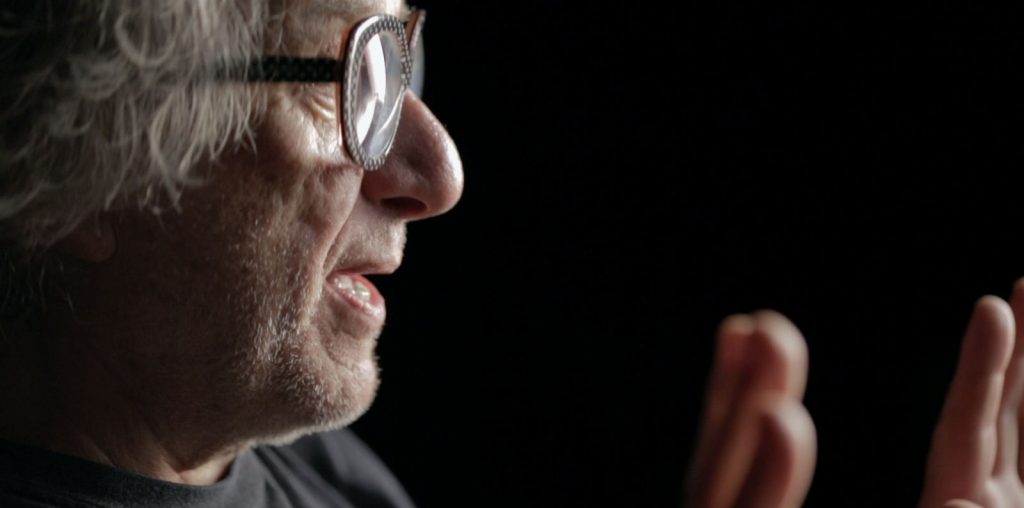
Purdah is defined as “…the custom in certain Muslim communities of keeping women in seclusion, with clothing that conceals them completely, in order to stay out of the sight of men.” Traditionally, a burka (alternately spelled as burqa, burkha, bourkha, burqua, and burqu’) is used to this end. A burka is a garment that entirely covers the woman wearing it. The Quran states that men and women should “…cover and be modest,” so its roots lay within a religious context, though it now extends to societal ones as well. What does it mean then when the patriarch of the family allows one of his daughters to not wear the burka to pursue her passion? How do modern ideas of modesty play into this decision?
So are but a few of the questions examined in Purdah, a documentary following Kaikasha Mirza, the daughter allowed to not wear her burka when traveling to, from, and during cricket practice. As a little girl, she would accompany her mom, Bilkees, to her older brother’s, Azhar, little league (for lack of a better term) cricket games. Kaikasha became enamored with it and one day teased Azhar that she could play better than him. His coach overhears this and asks her to prove it. The coach instantly tells their mom that a league for girls exists and her daughter needs to try out for it.
Akhtar, Kaikasha’s father, refuses at first, citing several religious issues, as well as being concerned with what family members would think. But he does eventually relent, understanding that as ideas in society change, you must also be willing to change without compromising your core beliefs. Director Jeremy Guy follows Kaikasha as she practices for a chance to play on the Mumbai team, which is the major leagues if you will. He also interviews her sisters, Saba (older) and Heena (younger), about their thoughts on the decision and their own experiences with the burka. Saba interviews for an air hostess position, while wearing a niqab (a veil) and is told that she can’t wear it at work. She passes on her dream job because of this.

“…following Kaikasha Mirza, the daughter allowed to not wear her burka when traveling to, from, and during cricket practice.”
That just about sums up the first half, more or less, of this 70-minute film. Kaikasha is full of life and seeing her watch, play, and coach cricket, her passion for the game shines through every moment. Akhtar is an interesting figure, as it is later revealed that he would often beat his wife but is forward-thinking enough to realize that the burka could impede one’s calling in life. Bilkees states that if Akhtar weren’t around, she’d allow everyone in the household to where what they’d like (within reason). The two brothers exist but don’t add much to the story, aside from being Kaikasha’s introduction to the sport to which she devotes her time.
This section of the movie is also marked by way too many shots of everyday life around Mumbai. There are montages of traffic moving, of Kaikasha riding the train to school, to home, to cricket practice, out shopping with her family, and it all feels like padding.
By the end of Purdah, I have yet to understand what draws Kaikasha to cricket enough to ask her father for such a significant sacrifice. Or even how the game is played. At the ten-minute mark, Kaikasha, Akhtar, Bilkees, Azhar, and Farhan (younger brother) are watching a cricket game on television. Getting a wicket is discussed. What in the bloody heck is a wicket? How does one get it?

“…the ending is uplifting and empowering…”
I completely understand that the point of Purdah is to reflect on the young lady being allowed to not wear the burka and her family and their lives, and not the sport itself. But to correctly understand her, some baseline knowledge of the game she loves is required. Much more importantly though, an iota of a clue as to what makes her so enamored with cricket is necessary. There is never a part of the movie where Kaikasha discusses what cricket gives her that she was missing before she started playing. The movie can barely be asked to examine what the other players think of what she forfeits to play; do they even know? Do they care? Do any of them tease or mock her for it? Some actual character context would be helpful.
The second half rectifies this to a significant degree, but it doesn’t overcome the issues overall. In short order (partially to avoid spoilers), Akhtar disappears, Heena gets married and gives birth to Hamza, someone may or may not contract HIV, and the audience discovers whether or not Kaikasha makes the Mumbai team. These new developments and how they affect this very kind, loving family gives the film a sense of weight and impact so desperately missing for the preceding thirty some odd minutes.
There’s a brilliant short form documentary spread across Purdah’s 70 minutes. As is though, the narrative in the first half lacks weight and context. The film picks up later on, and the ending is uplifting and empowering, which makes the movie worth watching at least once.

Purdah (2018) Directed by Jeremy Guy. Starring Kaikasha Mirza, Bilkees Mirza, Saba Mirza, Heena Mirza, Akhtar Mirza, Farhan Mirza, Azhar Mirza.
7 Gummi Bears (out of 10)


